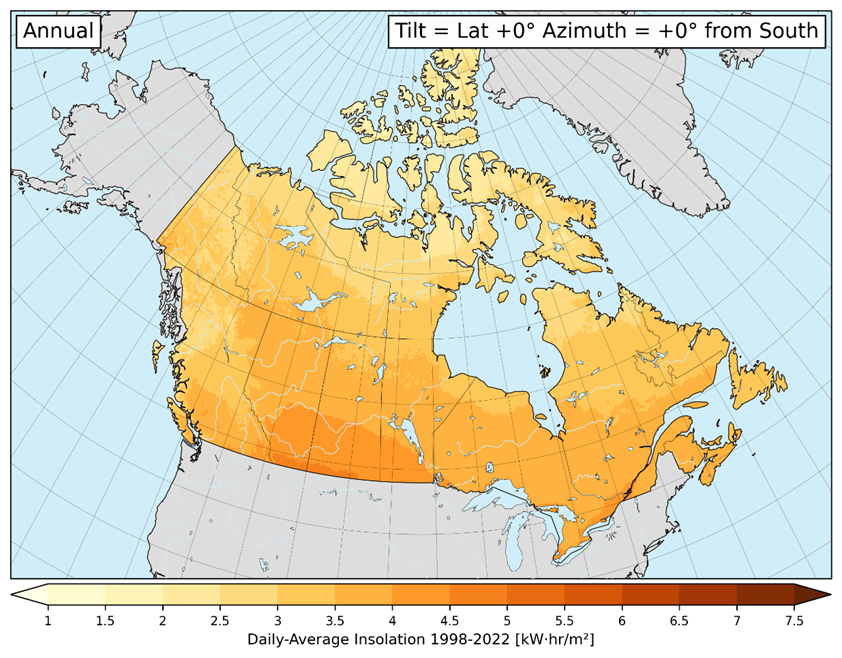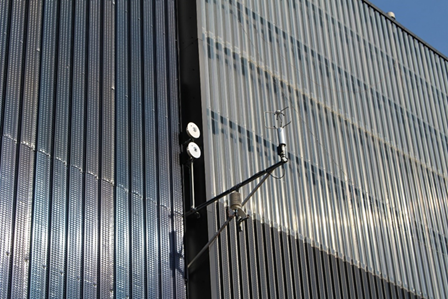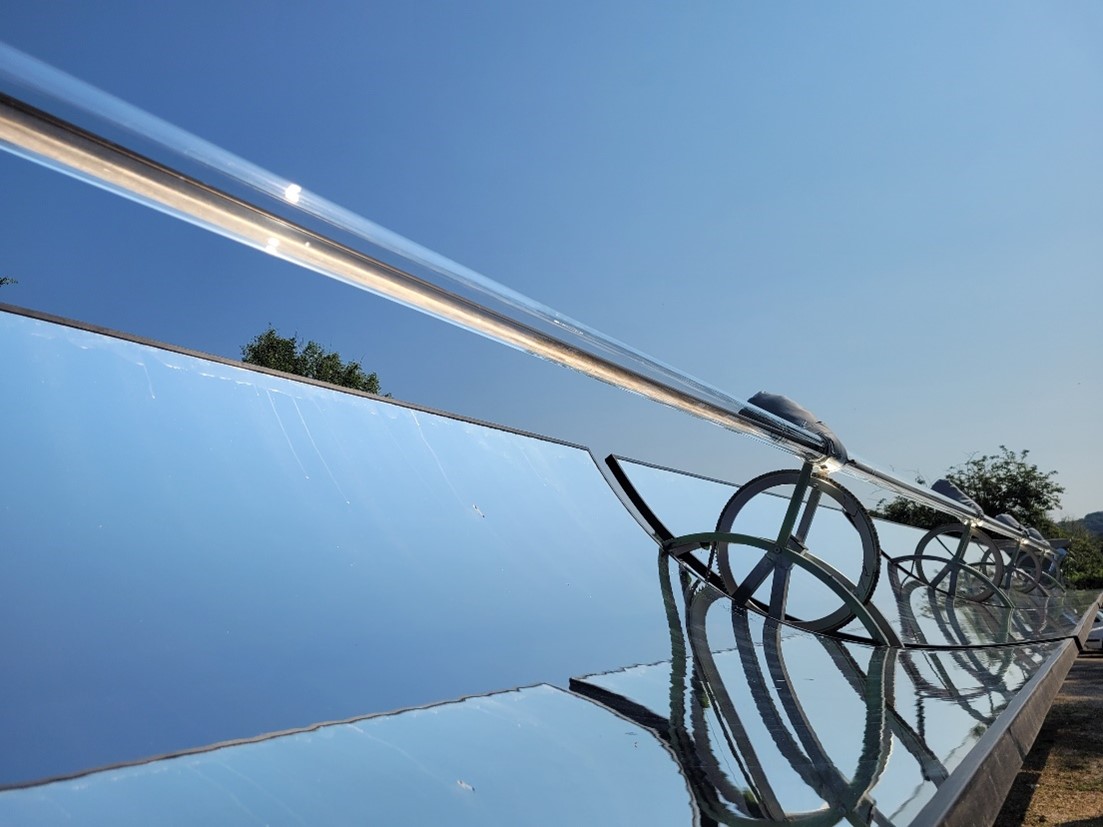Research to advance solar energy resource assessment (solar radiation and weather data through satellite and ground measurements), and innovative solar thermal and combined solar photovoltaic-thermal systems
Solar Resources and Innovative Solar Thermal (SORIST)
Project location: CanmetENERGY Ottawa, Ottawa, ON.
Timeline: 5 years (2023 to 2028)
Program: Funded by the Program of Energy R&D
Project Overview and Objectives
The Solar Resources and Innovative Solar Thermal (SORIST) project has three main goals: to improve the quality and availability of solar resource data in Canada, to develop innovative and cost-effective solar thermal applications and to evaluate non-emitting renewable energy technologies for heating needs in the light industrial sector. As such, the project is divided into three primary areas: solar resource assessment, innovative solar thermal equipment and systems, and renewable heat for industrial processes.
Solar Resource Assessment
Throughout the past 15 years, CanmetENERGY Ottawa (CE-O) has produced a strong solar resource dataset for Canada. From this dataset, CE-O has also published the Canadian Weather Energy and Engineering Datasets (CWEEDS) and the Canadian Weather for Energy Calculation (CWECs) data files. Those resources are widely used and highly valued by stakeholders across many sectors of the Canadian economy.
Under the current SORIST project, CanmetENERGY Ottawa is:
- Developing solar thermal potential maps based on Maps of solar resource potential in Canada
- Working on a methodology to create extreme meteorological years (EMY) that will support the evaluation of electrification scenarios, particularly when including widespread electrification of heating loads.
- Reviewing the availability of public and commercial solar resource data for Canada, the state-of-the-art of Canadian solar resource infra-structure and research, and the adequacy and availability of Canadian satellite data for solar resource analysis.
- Evaluating strategies to improve models’ calibration and satellite-derived data validation, with the goal of reducing relative errors of solar resource data, especially for Direct Normal Incidence (DNI) and solar resource data in general for Canadian northern areas.

Tilted daily average solar insolation map for Canada (south-facing plane with tilt equals latitude).
Innovative Solar Thermal HVAC Equipment and Systems
CE-O has had a long involvement with solar thermal technologies. It has developed compact solar water heating systems and transpired solar air heating systems. CanmetENERGY Ottawa has also been instrumental in developing solar assisted community systems such as the Drake Landing Solar Community and it has worked on various other applications of solar thermal technologies, such as greenhouses, fish farms and hatcheries, and swimming pool heating systems. Using this experience and its expertise in modelling, designing and testing solar-driven HVAC equipment and systems, CanmetENERGY Ottawa is currently working on the following areas:
- PVT (photovoltaic-thermal) solar collectors.
- PV (photovoltaic) and PVT powered water heaters.
- Transpired solar air collectors.
- Pavement-integrated solar thermal collectors.

Testing of large-scale transpired solar air collectors

PVT Collector prototype undergoing thermal performance indoor testing
Renewable Heat for Industrial Processes
Solar thermal technologies can provide significant benefits for electrification efforts by supplying ultra-low emissions heating which can be installed anywhere in the country with limited impact on the grid. As with heat pumps, solar thermal collector's performance is highly dependent on weather conditions and working temperatures. This is particularly relevant for industrial heating loads, which have various levels of heating demand temperatures and, often, strong seasonal variations.
To identify opportunities in the Canadian light industrial sector for reducing fossil fuels consumption in heating applications up to 250°C, CE-O is:
- Developing a thermal load assessment for the Canadian industrial sector to create temperature distributions of its thermal loads.
- Performing a case study for regional analysis of geographical and temporal variability of light industrial heating loads, including evaluating availability and barriers to access related data and information.
- Conducting techno-economic assessments of non-emitting technologies, with a focus on solar thermal, for key light industrial sectors.
- Modelling operation and process integration of non-emitting technologies including high-temperature heat pumps, high-temperature thermal energy storage, and concentrating solar collectors

Detail of a concentrating solar thermal collector
Contact CanmetENERGY in Ottawa
To learn more about this project, email our Business Office.